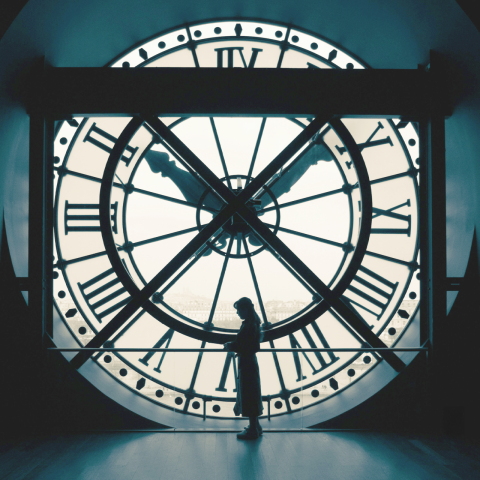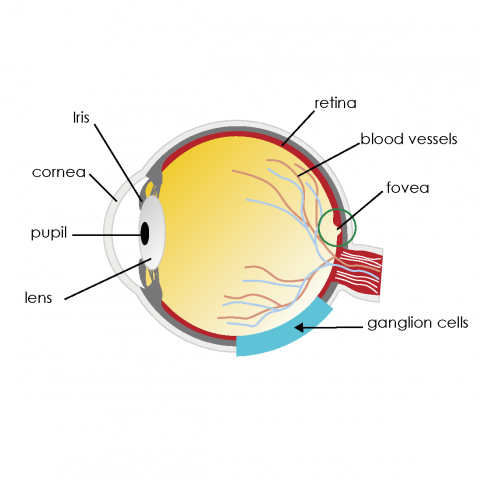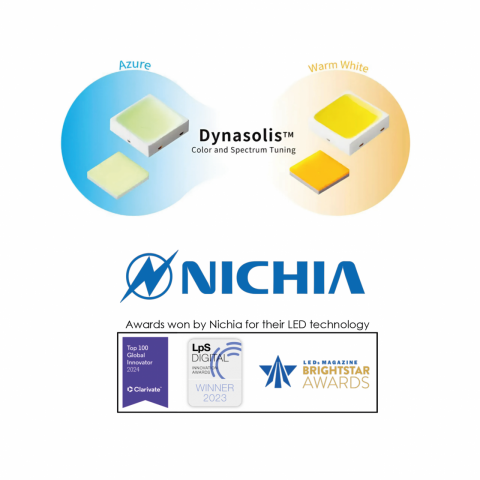Human Centric Lighting
Experience the future of lighting
The biological clock as a guide of the human body.

Circadian rhythm is the body’s natural, internal rhythm that repeats itself approximately every 24 hours and regulates various bodily processes, such as sleep-wake cycles, body temperature, hormone release and digestion.
This rhythm is synchronized by daylight, and plays a crucial role in maintaining healthy and balanced functioning of the body.
Science: the ganglion cells

Scientists discovered in the 1990s that a third type of light-sensitive cell exists, in addition to the known rods and cones.
The ganglion cells, also called spheres, are extra sensitive to light between 476nm and 495nm (azure light).
These spheres stimulate the sensors in our body and control non-visual processes, such as the production of certain hormones.
The influence of light on the human body.

Scientific research shows that our bodies, for those who work indoors, do not get enough azure light during the day.
As a result, our stress and sleep hormones are disrupted, leading to feelings of fatigue, a lack of energy, and low motivation.
It is important to compensate for the lack of daylight with good artificial light.
The solution for healthy lighting.

Nichia has conducted extensive research together with Fraunhofer Institute for Building Physics (IBP) on the light spectrum of conventional and full-spectrum LEDs and compared it to the light spectrum of natural daylight.
They also conducted research on the impact of light on humans and their health, accompanied by performance tests. This research is detailed in Nichia’s white paper called Dynasolis Lighting Solutions.
The solution Nomaled applies is Nichia’s Dynasolis LED technology, which uses Tunable White to combine 2700K LEDs with azure LEDs to recreate a full daylight cycle.
Want to see the full story of how light impacts your life?
Discover all the details below!